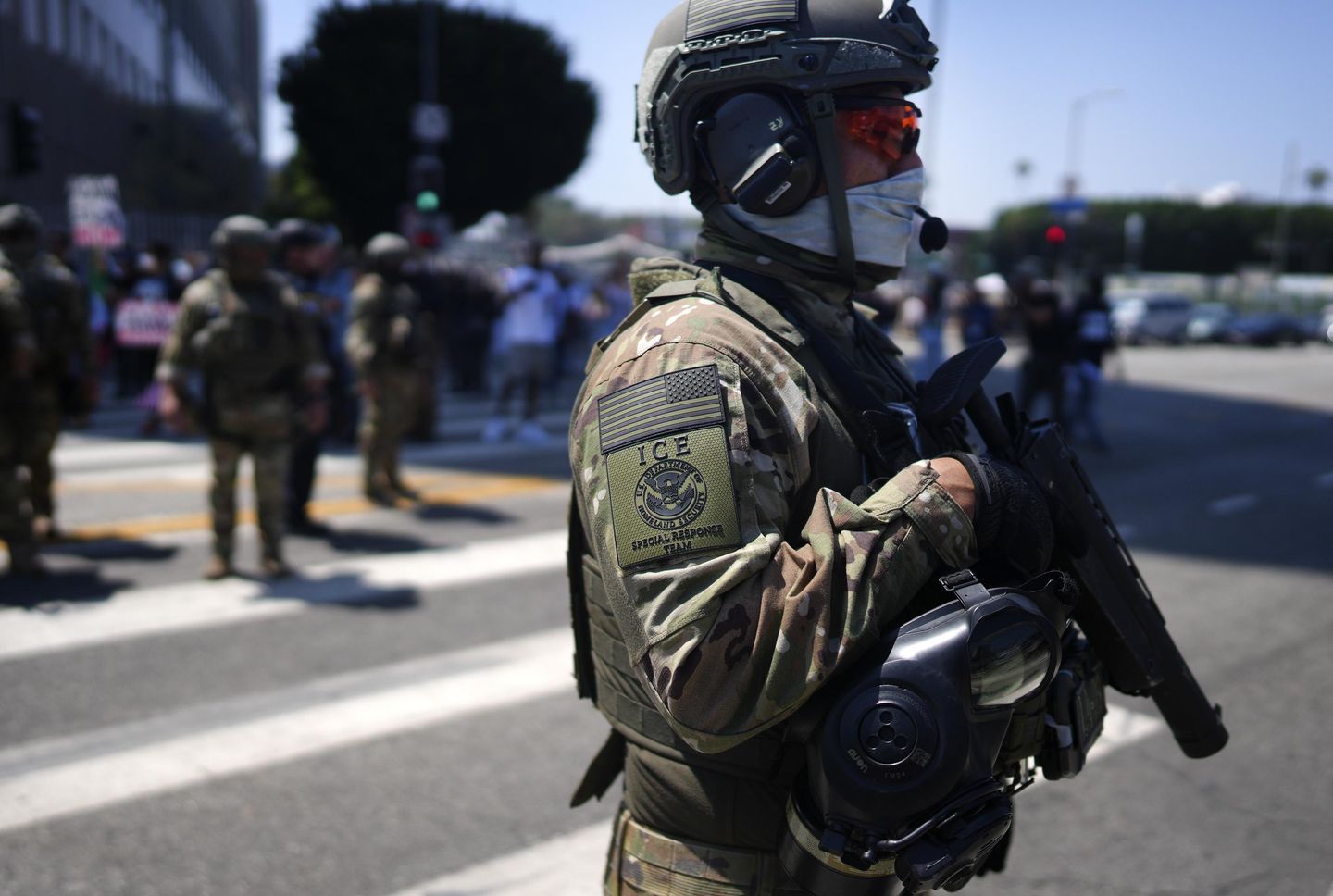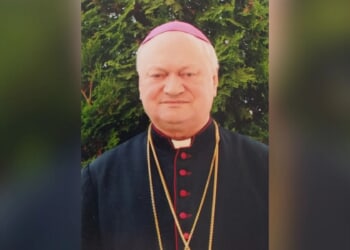
The Trump Justice Department sparked the next major legal battle over his deportation policies Thursday, rushing to the Supreme Court to ask the justices to give a preliminary OK to Homeland Security’s aggressive push to arrest illegal immigrants in Los Angeles.
Lower courts have ruled the roving patrols that U.S. Immigration and Customs Enforcement has used to snare illegal immigrants violate the Constitution, sweeping up people that officers didn’t have a reasonable suspicion of being in the country illegally.
Solicitor General D. John Sauer told the justices that the ruling has muddied the waters, making it unclear what sort of enforcement ICE can carry out and leaving every ICE officer worried that he could face punishment for stopping someone.
“The injunction wrongly brands countless lawful stops as unconstitutional, thereby hampering a basic law-enforcement tool, while turning every single stop in the district into a potential contempt trap,” Mr. Sauer said, referring to the central district of Los Angeles, the judicial district covered by the judge’s order.
Prodded by the White House’s demand for more arrests and deportations, Homeland Security surged enforcement in the Los Angeles area in early June.
Local activists, egged on by Democratic politicians, balked and the result was riots that spurred President Trump to federalize and deploy the National Guard.
Even as that legal battle played out, immigrants who were snared by ICE came forward with a lawsuit challenging their arrests. They said they were targeted based on flimsy factors such as their speaking Spanish or their presence at a car wash.
Judge Maame Frimpong, a Biden appointee to the court in Los Angeles, sided with them, saying ICE appeared to be operating under an unwritten policy encouraging unconstitutional arrests.
The 9th U.S. Circuit Court of Appeals agreed in a ruling earlier this week.
The lower judges said ICE has not been clear about what, exactly, justifies a stop. But the judges said the evidence they had seen, largely from news accounts, was not a compelling justification.
They pointed to evidence that officers were targeting people at car washes or construction sites.
Judge Frimpong barred ICE from using factors such as race, language, or location as the sole evidence for a stop or arrest.
Mr. Sauer, though, said ICE must have some leeway to make law enforcement decisions.
“Needless to say, no one thinks that speaking Spanish or working in construction always creates reasonable suspicion. Nor does anyone suggest those are the only factors federal agents ever consider. But in many situations, such factors — alone or in combination — can heighten the likelihood that someone is unlawfully present in the United States,” Mr. Sauer said. “U.S. Immigration and Customs Enforcement (ICE) agents are entitled to rely on these factors when ramping up enforcement of immigration laws in the district.”
He asked the justices to set aside the lower court rulings while the case develops.
Mr. Sauer said Los Angeles and the surrounding area are the fulcrum of deportation efforts, given the roughly 2 million illegal immigrants believed to live there.
“The district court’s injunction now significantly interferes with federal enforcement efforts across a region that is larger and more populous than many countries and that has become a major epicenter of the immigration crisis,” he said.




![Gavin Newsom Threatens to 'Punch These Sons of B*thces in the Mouth' [WATCH]](https://www.right2024.com/wp-content/uploads/2025/08/Gavin-Newsom-Threatens-to-Punch-These-Sons-of-Bthces-in-350x250.jpg)
![ICE Arrests Illegal Alien Influencer During Her Livestream in Los Angeles: ‘You Bet We Did’ [WATCH]](https://www.right2024.com/wp-content/uploads/2025/08/ICE-Arrests-Illegal-Alien-Influencer-During-Her-Livestream-in-Los-350x250.jpg)








